 As coordinator of the SUBBIMATT project, Centexbel will take the overall lead of the project, with a focus on orchestrating the demonstration activities. Further, Centexbel will be active in the development of bio-polyurethanes and textile intermediates which will serve as basis for the Smart Textile Materials.
As coordinator of the SUBBIMATT project, Centexbel will take the overall lead of the project, with a focus on orchestrating the demonstration activities. Further, Centexbel will be active in the development of bio-polyurethanes and textile intermediates which will serve as basis for the Smart Textile Materials.
 AITEX leads and coordinates WP3 activities, focusing on transforming biobased materials into textile intermediates through advanced techniques like roll-to-roll coating, e-spinning, and melt extrusion. The institute also develops electrospun membranes, their finishing, and lamination. Additionally, AITEX works on material characterization and scales up processes to semi-industrial levels. As part of its role, AITEX will create manufacturing guidelines for these intermediates and explore their potential applications. Furthermore, AITEX’s involvement extends to WP4, where it will test and assess smart textile materials derived from WP3 intermediates, with a key focus on leading Task 4.3.
AITEX leads and coordinates WP3 activities, focusing on transforming biobased materials into textile intermediates through advanced techniques like roll-to-roll coating, e-spinning, and melt extrusion. The institute also develops electrospun membranes, their finishing, and lamination. Additionally, AITEX works on material characterization and scales up processes to semi-industrial levels. As part of its role, AITEX will create manufacturing guidelines for these intermediates and explore their potential applications. Furthermore, AITEX’s involvement extends to WP4, where it will test and assess smart textile materials derived from WP3 intermediates, with a key focus on leading Task 4.3.
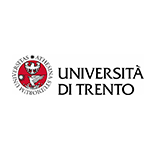 The University of Trento (UNITN) plays a key role in the SUBBIMATT project, contributing to Work Packages WP4, WP5, WP6, and WP7. In WP4, UNITN is involved in designing smart textile materials (STM) and developing guidelines for scaling up. In WP5, it supports demonstrator development and evaluation. In WP6, UNITN leads efforts in material characterization, modeling, and optimization, as well as being the leading beneficiary for Deliverable D6.5, which provides design guidelines for STM use in key applications. Additionally, UNITN contributes to business case development in WP7.
The University of Trento (UNITN) plays a key role in the SUBBIMATT project, contributing to Work Packages WP4, WP5, WP6, and WP7. In WP4, UNITN is involved in designing smart textile materials (STM) and developing guidelines for scaling up. In WP5, it supports demonstrator development and evaluation. In WP6, UNITN leads efforts in material characterization, modeling, and optimization, as well as being the leading beneficiary for Deliverable D6.5, which provides design guidelines for STM use in key applications. Additionally, UNITN contributes to business case development in WP7.
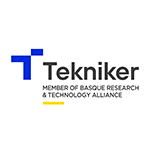
- Quality Management of the project
- Synthesis and characterization of shape memory bio-based polyurethane for textile industry
- Development and design of specific testing procedures and experimental setups for evaluating the triboelectric and piezoelectric functionality of the energy harvester textiles (STM2) developed within the project. Experimental tests and tribological analysis.
- Development of specific energy harvester devices to store the energy generated by the novel textiles in use.
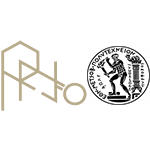 The National Technical University of Athens (NTUA), with its strong expertise in materials science, will lead Work Package 2 (WP2): Bio-based & Bio-inspired Materials. NTUA’s primary experimental role will focus on developing Negative Thermoresponsive Hydrogels, intended for use in breathable textiles. Additionally, NTUA will develop carbon nanotubes to be integrated into electrospinning formulations, aiming to enhance the energy storage efficiency of triboelectric devices.
The National Technical University of Athens (NTUA), with its strong expertise in materials science, will lead Work Package 2 (WP2): Bio-based & Bio-inspired Materials. NTUA’s primary experimental role will focus on developing Negative Thermoresponsive Hydrogels, intended for use in breathable textiles. Additionally, NTUA will develop carbon nanotubes to be integrated into electrospinning formulations, aiming to enhance the energy storage efficiency of triboelectric devices.
Moreover, NTUA will serve as the link between the Safe and Sustainable by Design activities conducted in WP1 and will concurrently carry out experimental examinations on the release of active substances from the project demonstrators, utilizing advanced instrumental chemical analysis techniques.
NTUA will also organize a SUBBIMATT Training School and moderate the project’s webinars, ensuring effective knowledge dissemination and stakeholder engagement. Furthermore, NTUA will be responsible for managing the Data Management Plan of SUBBIMATT and ensuring compliance with ethical standards.
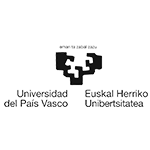 The University of the Basque Country (EHU) will design and develop new shape-memory biopolyurethanes, using bio-based polyols and isocyanates, for the creation of innovative fabrics that can respond to temperature stimuli. By carefully designing and selecting the appropriate formulations, these materials will not only adapt their response to environmental changes but will also be suitable for spinning, enabling the production of adaptable textiles through shape-memory property.
The University of the Basque Country (EHU) will design and develop new shape-memory biopolyurethanes, using bio-based polyols and isocyanates, for the creation of innovative fabrics that can respond to temperature stimuli. By carefully designing and selecting the appropriate formulations, these materials will not only adapt their response to environmental changes but will also be suitable for spinning, enabling the production of adaptable textiles through shape-memory property.
 ProtoQSAR is a company based in València, Spain, that develops and applies computational methods to evaluate the properties of chemicals. The company supports clients in meeting European regulatory requirements for the registration and labeling of compounds, including REACH, ICH, and cosmetics regulations.
ProtoQSAR is a company based in València, Spain, that develops and applies computational methods to evaluate the properties of chemicals. The company supports clients in meeting European regulatory requirements for the registration and labeling of compounds, including REACH, ICH, and cosmetics regulations.
ProtoQSAR is involved in a variety of projects across the pharmaceutical, veterinary, cosmetic, agrochemical, and functional food sectors. Recent projects focus on the Safe and Sustainable by Design (SSbD) approach to material development.
In the SUBBIMMAT project, ProtoQSAR will create an internal database using various computational approaches, such as data-mining tools and QSAR models. The information compiled in this database will be used to perform the SSbD assessment of the materials developed in the different case studies of the SUBBIMATT project.
 APPLUS+ RESCOLL will be focused on the development of waterbased/biobased debonding primers for smart technical textiles, from formulation to support for the production of demonstrators. These primers will help to enhance the recycling potential of the multimaterials developed in the project, especially the coated fabrics and laminated textile components. RESCOLL will also be part of the Project Steering Committee.
APPLUS+ RESCOLL will be focused on the development of waterbased/biobased debonding primers for smart technical textiles, from formulation to support for the production of demonstrators. These primers will help to enhance the recycling potential of the multimaterials developed in the project, especially the coated fabrics and laminated textile components. RESCOLL will also be part of the Project Steering Committee.
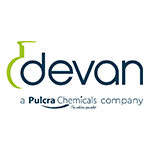 Devan Chemicals collaboration in Subbimatt aims to develop and upscale under the safe and sustainable-by-design platform, a bioinspired and biobased textile finish product focused on thermo-responsive smart textile materials. Devan also aims to expand its circular offerings by collaborating with the development of a REACH complaint debondable solution for the textile market.
Devan Chemicals collaboration in Subbimatt aims to develop and upscale under the safe and sustainable-by-design platform, a bioinspired and biobased textile finish product focused on thermo-responsive smart textile materials. Devan also aims to expand its circular offerings by collaborating with the development of a REACH complaint debondable solution for the textile market.
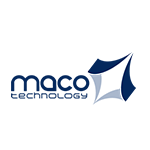 Maco Technology specializes in the design and construction of custom-made tensile and pneumatic structures, with expertise in ETFE structures and textile facades for sectors such as sports, architecture, agriculture, and industry. In the SUBBIMATT project, Maco Technology is involved in Work Packages WP2, WP4, WP5, and WP6. The company supports the development of biobased and bioinspired materials in WP2, contributes to the design and scaling-up of smart textile materials in WP4, participates in the development and evaluation of demonstrators in WP5, and aids in material characterization and optimization in WP6.
Maco Technology specializes in the design and construction of custom-made tensile and pneumatic structures, with expertise in ETFE structures and textile facades for sectors such as sports, architecture, agriculture, and industry. In the SUBBIMATT project, Maco Technology is involved in Work Packages WP2, WP4, WP5, and WP6. The company supports the development of biobased and bioinspired materials in WP2, contributes to the design and scaling-up of smart textile materials in WP4, participates in the development and evaluation of demonstrators in WP5, and aids in material characterization and optimization in WP6.
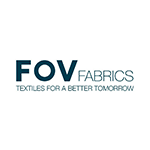 FOV Fabrics, a Swedish company, thrives at the forefront of textile innovation, merging advanced functionality with circular sustainability. With a fully vertical process, from creative design to cutting-edge R&D and modern production technologies, FOV produces 10 million square meters of high-tech fabrics annually in its Swedish factory, exporting to clients worldwide. In the SUBBIMATT project, FOV Fabrics is involved in Work Packages WP2, WP3, WP4, WP5, and WP6. The company contributes to the development of biobased and bioinspired materials (WP2), their processing into textile intermediates (WP3), the design of smart textile materials (WP4), demonstrator development (WP5), and material characterization and optimization (WP6).
FOV Fabrics, a Swedish company, thrives at the forefront of textile innovation, merging advanced functionality with circular sustainability. With a fully vertical process, from creative design to cutting-edge R&D and modern production technologies, FOV produces 10 million square meters of high-tech fabrics annually in its Swedish factory, exporting to clients worldwide. In the SUBBIMATT project, FOV Fabrics is involved in Work Packages WP2, WP3, WP4, WP5, and WP6. The company contributes to the development of biobased and bioinspired materials (WP2), their processing into textile intermediates (WP3), the design of smart textile materials (WP4), demonstrator development (WP5), and material characterization and optimization (WP6).
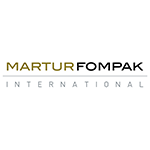 Martur is one of the demonstrator in the project that main role is to integrate the energy harvester fabric to the automotive interior parts (seat, door panel, headliner) and test the prototypes to evaluate the performance in point of energy generated as well as to perform standardised automotive tests. Martur will also transfer knowledge in automotive perspective to project partners and support the activities to align with automotive standards during the energy harvester fabric development.
Martur is one of the demonstrator in the project that main role is to integrate the energy harvester fabric to the automotive interior parts (seat, door panel, headliner) and test the prototypes to evaluate the performance in point of energy generated as well as to perform standardised automotive tests. Martur will also transfer knowledge in automotive perspective to project partners and support the activities to align with automotive standards during the energy harvester fabric development.
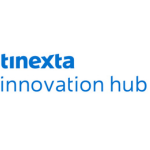 Tinexta Innovation Hub, is the leading strategic and financial consulting company for innovation, digital transformation, and sustainable business development. With a structure of over 900 professionals, Tinexta Innovation Hub has been operating for almost 30 years throughout Italy. It has gained experience in different sectors of the industrial fabric, building a portfolio of over 10,000 clients. The network of partnerships in academia, technology, finance, and institutions allows Tinexta Innovation Hub to present itself as a partner capable of supporting companies in the increasingly complex challenges they face. To support research, development and innovation projects, production investments and digitalisation, the Tinexta Innovation Hub team provides companies with its transversal, technical and technological skills, and its many years of experience in the field of concessional finance. Founded in Correggio where it maintains its headquarters, it operates throughout Italy as well as in Belgium, Bulgaria, France, and Spain.
Tinexta Innovation Hub, is the leading strategic and financial consulting company for innovation, digital transformation, and sustainable business development. With a structure of over 900 professionals, Tinexta Innovation Hub has been operating for almost 30 years throughout Italy. It has gained experience in different sectors of the industrial fabric, building a portfolio of over 10,000 clients. The network of partnerships in academia, technology, finance, and institutions allows Tinexta Innovation Hub to present itself as a partner capable of supporting companies in the increasingly complex challenges they face. To support research, development and innovation projects, production investments and digitalisation, the Tinexta Innovation Hub team provides companies with its transversal, technical and technological skills, and its many years of experience in the field of concessional finance. Founded in Correggio where it maintains its headquarters, it operates throughout Italy as well as in Belgium, Bulgaria, France, and Spain.
Since 2008, the European Funding Development (EFD) of Tinexta Innovation Hub supports enterprises and private and public bodies, at national and international level, in participating to and managing Research and Innovation projects funded by the European Commission. EFD offers methodological and strategic consultancy for approach and participation in European research and innovation funding programmes, like Horizon Europe and LIFE Programme, in a complete cycle from the analysis of the sectorial policies to the conclusion of the research and innovation projects. EFD supports its customers and partners in networking, project ideas definition, project planning/submission, negotiation, management, dissemination, and exploitation of project results. EFD also participate directly to the European projects with the roles of coordinator and partner for project management, communication, dissemination, and exploitation.
Role in SUBIMATT:
Tinexta Innovation Hub serves as the project’s networking expert, facilitating connections with stakeholders interested in the research and taking the lead of WP7 regarding Business case development & Dissemination and Communication activities of the project.

UCL’s expertise includes the experimental characterization of structural textiles and polymers, the mathematical modelling and numerical implementation of their thermo-mechanical responses and the optimization of their components and topologies to enhance mechanical and functional properties. As such, UCL is the leader of WP6 “Characterisation, modelling and optimization”, where they lead the numerical modelling and data-driven optimization of the Smart Textile Materials (STM). Furthermore, UCL is directly involved in the design, modelling and implementation of the pneumatic actuator (STM1).

 “Co-Funded by the European Union (Project 101129911). Views and opinions expressed are however those of the author(s) only and do not necessarily reflect those of the European Union or the European Health and Digital Executive Agency (HADEA). Neither the European Union nor the granting authority can be held responsible for them.”
“Co-Funded by the European Union (Project 101129911). Views and opinions expressed are however those of the author(s) only and do not necessarily reflect those of the European Union or the European Health and Digital Executive Agency (HADEA). Neither the European Union nor the granting authority can be held responsible for them.”